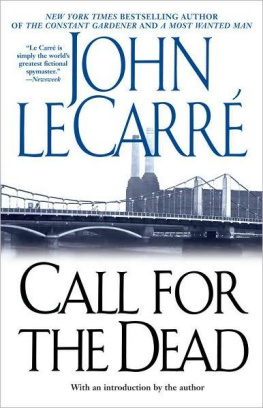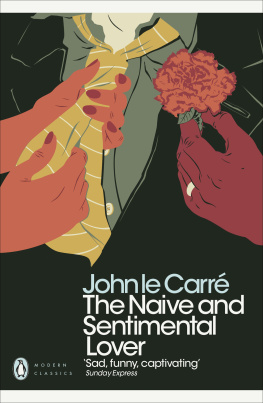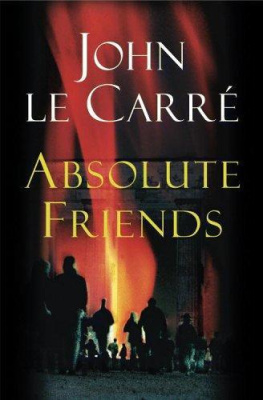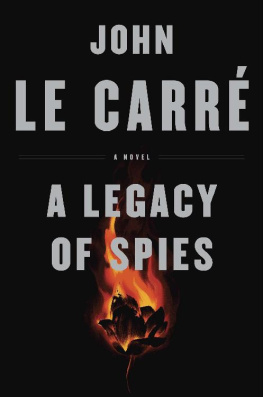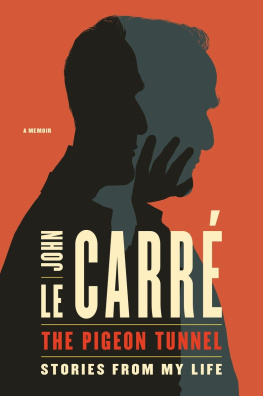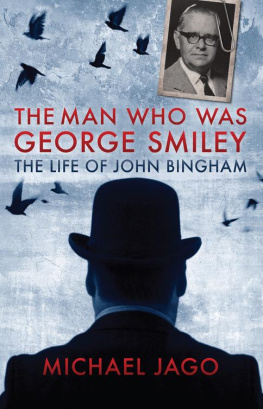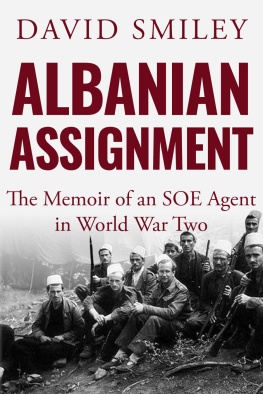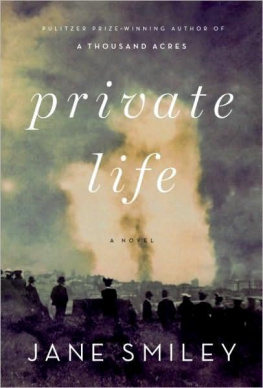| Call for the Dead |
| George Smiley [1] |
| John Le Carr |
| Simon and Schuster (2002) |
|
| Rating: | **** |
- ISBN-13:9780743431675
- ISBN:0743431677
Summary
John le Carr classic novels deftly navigate readers through the intricate shadow worlds of international espionage with unsurpassed skill and knowledge, and have earned him -- and his hero, British Secret Service Agent George Smiley, who is introduced in this, his first novel -- unprecedented worldwide acclaim.
George smiley had liked Samuel Fennan, and now Fennan was dead from an apparent suicide. But why? Fennan, a Foreign Office man, had been under investigation for alleged Communist Party activities, but Smiley had made it clear that the investigation -- little more than a routine security check -- was over and that the file on Fennan could be closed. The very next day, Fennan was found dead with a note by his body saying his career was finished and he couldn't go on. Smiley was puzzled...
John Le Carr' Call for the Dead
I
A BRIEF HISTORY OF GEORGE SMILEY
When Lady Ann Sercomb married George Smiley towards the end of the war she described him to her astonished Mayfair friends as breathtakingly ordinary. When she left him two years later in favour of a Cuban motor racing driver, she announced enigmatically that if she hadn't left him then, she never could have done; and Viscount Sawley made a special journey to his club to observe that the cat was out of the bag. This remark, which enjoyed a brief season as a mot, can only be understood by those who knew Smiley. Short, fat and of a quiet disposition, he appeared to spend a lot of money on really bad clothes, which hung about his squat frame like a skin on a shrunken toad. Sawley, in fact, declared at the wedding that "Sercomb was mated to a bullfrog in a sou'wester." And Smiley, unaware of this description, had waddled down the aisle in search of the kiss that would turn him into a Prince. When Lady Ann followed her star to Cuba, she gave some thought to Smiley. With grudging admiration she admitted to herself that if there were an only man in her life, Smiley would be he. She was gratified in retrospect that she had demonstrated this by holy matrimony. The effect of Lady Ann's departure upon her former husband did not interest society--which indeed is unconcerned with the aftermath of sensation. Yet it would be interesting to know what Sawley and his flock might have made of Smiley's reaction; of that fleshy, bespectacled face puckered in energetic concentration as he read so deeply among the lesser German poets, the chubby wet hands clenched beneath the tumbling sleeves. But Sawley profited by the occasion with the merest of shrugs by remarking partir c'est courir un peu, and he appeared to be unaware that though Lady Ann just ran away, a little of George Smiley had indeed died. That part of Smiley which survived was as incongruous to his appearance as love, or a taste for unrecognised poets: it was his profession, which was that of intelligence officer. It was a profession he enjoyed, and which mercifully provided him with colleagues equally obscure in character and origin. It also provided him with what he had once loved best in life: academic excursions into the mystery of human behaviour, disciplined by the practical application of his own deductions. He wasn't introduced to the Board, but he knew half of its members by sight. There was Fielding, the French mediaevalist from Cambridge, Sparke from the School of Oriental Languages, and Steed-Asprey who had been dining at High Table the night Smiley had been Jebedee's guest. He had to admit he was impressed. For Fielding to leave his rooms, let alone Cambridge, was in itself a miracle. Afterwards Smiley always thought of that interview as a fan dance; a calculated progression of disclosures, each revealing different parts of a mysterious entity. Finally Steed-Asprey, who seemed to be Chairman, removed the last veil, and the truth stood before him in all its dazzling nakedness. He was being offered a post in what, for want of a better name, Ste'Asprey blushingly described as the Secret Service. Smiley had asked for time to think. They gave him a week. No one mentioned money. That night he stayed in London at somewhere rather good and took himself to the theatre. He felt strangely light-headed and this worried him. He knew very well that he would accept, that he could have done so at the interview. It was only an instinctive caution, and perhaps a pardonable desire to play the coquette with Fielding, which prevented him from doing so. His first operational posting was relatively pleasant: a two-year appointment as "englischer Dozent" at a provincial German University: lectures on Keats and vacations in Bavarian hunting lodges with groups of earnest and solemnly promiscuous German students. Towards the end of each long vacation he brought some of them back to England, having already earmarked the likely ones and conveyed his recommendations by clan-' destine means to an address in Bonn; during the entire two years he had no idea of whether his recommendations had been accepted or ignored. He had no means of knowing even whether, his candidates were approached. Indeed he had no means of knowing whether his messages ever reached their destination; and he had no contact with the Department while in England. His emotions in performing this work were mixed, and irreconcilable. It intrigued him to evaluate from a detached position what he had learnt to describe as "the agent potential" of a human being; to devise minuscule tests of character and behaviour which could inform him of the qualities of a candidate. This part of him was bloodless and inhuman--Smiley in this role was the international mercenary of his trade, amoral and without motive beyond that of personal gratification. Conversely it saddened him to witness in himself the gradual death of natural pleasure. Always withdrawn, he now found himself shrinking from the temptations of friendship and human loyalty; he guarded himself warily from spontaneous reaction. By the strength of his intellect, he forced himself to observe humanity with clinical objectivity, and because he was neither immortal nor infallible he hated and feared the falseness of his life. Nineteen thirty-nine saw him in Sweden, the accredited agent of a well-known Swiss small-arms manufacturer, his association with the firm conveniently backdated. Conveniently, too, his appearance had somehow altered, for Smiley had discovered in himself a talent for the part which went beyond the rudimentary change to his hair and the addition of a small moustache. For four years he had played the part, travelling back and forth between Switzerland, Germany and Sweden. He had never guessed it was possible to be frightened for so long. He developed a nervous irritation in his left eye which remained with him fifteen years later; the strain etched lines on his fleshy cheeks and brow. He learnt what it was never to sleep, never to relax, to feel at any time of day or night the restless beating of his own heart, to know the extremes of solitude and self-pity, the sudden unreasoning desire for a woman, for drink, for exercise, for any drug to take away the tension of his life. Smiley proposed to Steed-Asprey's secretary, the Lady Ann Sercomb. The war was over. They paid him off, and he took his beautiful wife to Oxford to devote himself to the obscurities of seventeenth-century Germany. But two years later Lady Ann was in Cuba, and the revelations of a young Russian cypher-clerk in Ottawa had created a new demand for men of Smiley's experience. The job was new, the threat elusive and at first he enjoyed it. But younger men were coming in, perhaps with fresher minds. Smiley was no material for promotion and it dawned on him gradually that he had entered middle age without ever being young, and that he was--in the nicest possible way--on the shelf. They had brought him in during the war, the professional civil servant from an orthodox department, a man to handle paper and integrate the brilliance of his staff with the cumbersome machine of bureaucracy. It comforted the Great to deal with a man they knew, a man who could reduce any colour to grey, who knew his masters and could walk among them. And he did it so well. They liked his diffidence when he apologised for the company he kept, his insincerity when he defended the vagaries of his subordinates, his flexibility when formulating new commitments. Nor did he let go the advantages of a cloak and dagger man malgr'ui, wearing the cloak for his masters and preserving the dagger for his servants. Ostensibly, his position was an odd one. He was not the nominal Head of Service, but the Ministers' Adviser on Intelligence, and Steed-Asprey had described him for all time as the Head Eunuch. This was a new world for Smiley: the brilliantly lit corridors, the smart young men. He felt pedestrian and old-fashioned, homesick for the dilapidated terrace house in Knightsbridge where it had all begun. His appearance seemed to reflect this discomfort in a kind of physical recession which made him more hunched and frog-like than ever. He blinked more, and acquired the nickname of "Mole." But his d'tante secretary adored him, and referred to him invariably as "My darling teddy-bear." Smiley was now too old to go abroad. Maston had made that clear: "Anyway, my dear fellow, as like as not you're blown after all the ferreting about in the war. Better stick at home, old man, and keep the home fires burning." Which goes some way to explaining why George Smiley sat in the back of a London taxi at two o'clock on the morning of Wednesday, 4th January, on his way to Cambridge Circus.

